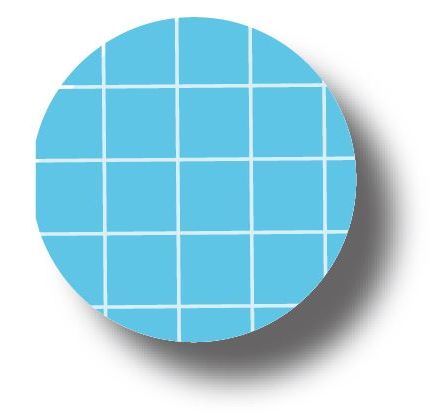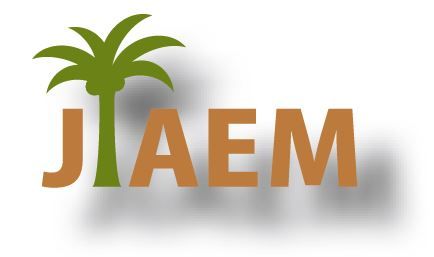Nonprofit Organization Prospectus
The city plays a central role in the development of modern societies by attracting a large population with expectations for abundant life on one hand, and by creating profound conflicts resulting from diverse values and a variety of social disparity on the other. Current studies have made it evident that such challenges inherent in the city are not just a modern phenomenon but also a difficulty with which human beings have constantly struggled throughout the course of their history since the ancient time. Following one of the dominant streams of the city’s history, one could reach an origin in Mesopotamia.
Mesopotamia is a birthplace of ancient urban civilizations and has laid a foundation for them by bringing about a diverse range of inventions and innovations. In the core Mesopotamian cities, there is coexistence as well as disparity while most people contrived ways to avoid clashes of values. Inquiries into a city, therefore, does not only explore the origin of cities and civilizations, but also could hopefully contribute to solutions of varied problems of the city-centered modern society and provide suggestions for its future.
For fuller inquiries into Mesopotamian urban civilizations, it is essential to conduct long-term archaeological researches on the field. Until recently had Iraq been considered as a hardly accessible country. These several years, however, the security situation of its southern area has been dramatically improved and excavation teams from quite a few countries have demonstrably resumed their activities there. A great opportunity has now presented itself for the Japanese teams to respond to local requests by extending supports for education and researches, as well as to make a substantial contribution by elucidating the Mesopotamian urban civilization.
In the mind of a large population in Japan, on the other hand, modern Iraq and ancient Mesopotamia, the cradle of the civilization, are neither geographically nor historically connected with each other. Although the level of the Japanese people’s interests in Mesopotamia remains high, they tend to perceive Iraq, a country with continuous conflicts, just as a dangerous place and see as if it were a world totally different from their own. Such discrepancy in recognition originates from the lack of effective history education. To solve this problem, one should diffuse, in Japan’s field of education, knowledge on geographical and historical connection of the Mesopotamian civilization and the modern state of Iraq.
Over a quarter of a century, Seminar of West Asian Archaeology, a voluntary group lead by the president of the present NPO, has had meetings for discussion on the archaeology of Mesopotamia and its surrounding areas. Based on such an achievement, the new organization seeks better forms and contents of history education for the younger generation and makes every effort to spread its fruits, in continuous cooperation with the group. It also promotes grass-root cultural exchanges and also conduct joint archaeological researches, with the Iraqi side. It thus intends to make contributions to the resolution of modern problems.
To implement the above-mentioned visions, the newly designed organization will endeavor to become an irreplaceable nonprofit and citizen-centered one by acquiring understanding and support over fields and positions and by accomplishing the collaboration with domestic and international institutions. We have hereby established the Japanese-Iraqi Institute for Archaeological Education of Mesopotamia (JIAEM), a nonprofit organization aiming at advancement of current information on archaeological and related study results on Mesopotamia and its neighboring regions, and of education for the next generations as well as of academic and cultural exchanges between Iraq and Japan.
July 21, 2018
Tatsundo Koizumi, PhD
President
Japanese-Iraqi Institute for Archaeological Education of Mesopotamia
(Nonprofit organization; Corporate Number 5021005011439)
Show all・・・
Board Members, Secretariat, Advisers
| Tatsundo Koizumi | (Waseda University, Lecturer) |
|---|---|
| Tomoyuki Sakakibara | |
| Mariya Masubuchi | (Kyoto University of the Arts, Professor) |
| Koetsu Funabiki |
|---|
| Tatsundo Koizumi | (Concurrent) |
|---|---|
| Tomoyuki Sakakibara | (Concurrent) |
| Takahiro Yamaguchi | (Web site) |
| Mahmoud Al-Qaysi | |
|---|---|
| (Baghdad University, Professor) | |
| Imad Dawood | |
| (Thi-Qar University, Professor) | |
| Laith Hussein | |
| (Baghdad University, Professor) | |
Brief History
SWAA (Seminar of West Asian Archaeology), a forerunner of JIAEM founded in April 1991, has been active at Waseda University as a voluntary workshop for younger generations studying archaeology in the West Asian, Egyptian and neighboring regions. It has continued the activity for the members to present their opinions freely, and discuss diverse archaeological subjects, irrespective of age, affiliation and status. In view of such a current situation in Iraq as the restoration of security and the resume of archaeological reseaches by foreign missions at the same time, it seems that a great occasion is coming up for the Japanese to make an international contribution to unravelling the ancient city civilization in the Mesopotamian region. That is exactly a good opportunity for SWAA to make further progress, based on its achievements through these activities for more than a quarter of the century. It has resulted, therefore, in the establishment of JIAEM as a first step towards realizing a new project on archaeological studies in the Mesopotamian and neighboring regions.
Regulations
Activities
| 1. | Implementing archaeological studies in the Mesopotamian and neighboring regions: |
| ・ | Various lecture sessions |
| ・ | APSU(Archaeological Project for Sumerian Urbanization) in which JIAEM conducts archaeological researches in the Sumer region, Southern Iraq |
| 2. | Implementing human resource development for younger scholars and sharing academic information: |
| ・ | Capacity-building workshops for younger scholars |
| ・ | Widespread education sessions for general participants |
| 3. | Implementing popularization of study results and education of children based thereon: |
| ・ | Archaeological open lectures for general participants |
| ・ | Experience-based learning programs for children |
| 4. | Implementing international academic exchange between Iraq and Japan: |
| ・ | Archaeological online programs for Iraqi students |
| ・ | Assistance to Iraqi students who hope to study in Japan |
| ・ | Invitations of Iraqi archaeological and/or educational specialists for enhancing relations between Iraq and Japan |
| 5. | Implementing other indispensable projects and events to achieve the purpose: |
| ・ | Transmission of information via WEB and SNS |
| ・ | Museum study tours |
| ・ | Publication of news letters for JIAEM members |
Related organization
■Seminar of West Asian Archaeology (SWAA)
SWAA is a voluntary workshop for people of any age, affiliation, and status to study archaeology in the West Asian, Egyptian, Indus, Central Asian and neighboring regions. Members can present their opinions freely, and discuss energetically. The subjects of presentation is free. Progress reports of graduation thesis, master’s one, and doctoral dissertation as well as pre-conference practices are also acceptable for younger researchers to have an opportunity for skill-up and to be confident in themeslves. SWAA, moreover, hold a symposium to make its activities public.
■Middle Eastern Forum of Tokyo (MEFT)
Utilizing Arabic as a basic tool for communication, MEFT (Middle East Forum of Tokyo) dedicates itself to translation activities in order to transmit information from inside the Arab world to Japanese people, and vice versa. Most of its members are working adults interested in the Arab World. As regular activities, MEFT holds monthly gatherings. Topics to be discussed there are to focus on the usual life of ordinary Arab people far from political news in the mass media.
Notes on JIAEM's Logo
The motif expresses Mesopotamia and archaeology.

 |
Round shape of the whole frame images a cylinder seal. Light blue of background images Apsu (original freshwater in the Mesopotamian mythology). White grid on the background images trenches at excavations of archaeological sites. |
|---|---|
 |
Two waves in dark blue image the Euphrates and Tigris rivers. |
 |
Green date palm of “I” in “JIAEM” represents the national tree of Republic of Iraq, and green color symbolizes Japan, signifying hope for further promotion of cultural exchanges between both the countries. Brick color of other characters in “JIAEM” images sun-dried bricks in archaeological sites. |




 Articles of Association (in Japanese)
Articles of Association (in Japanese)